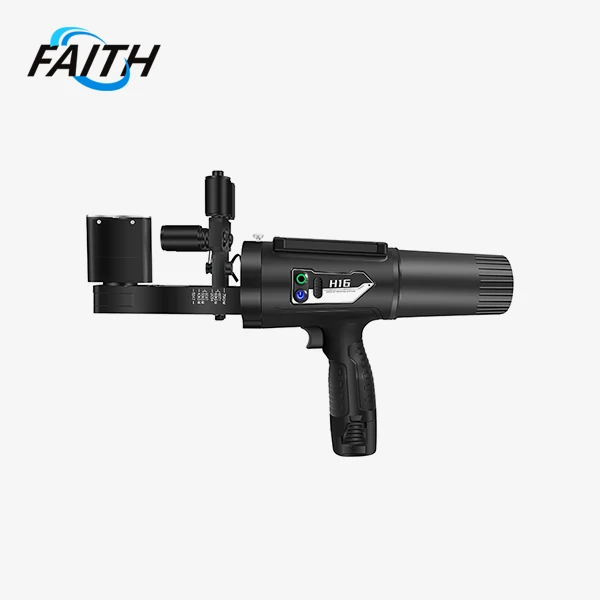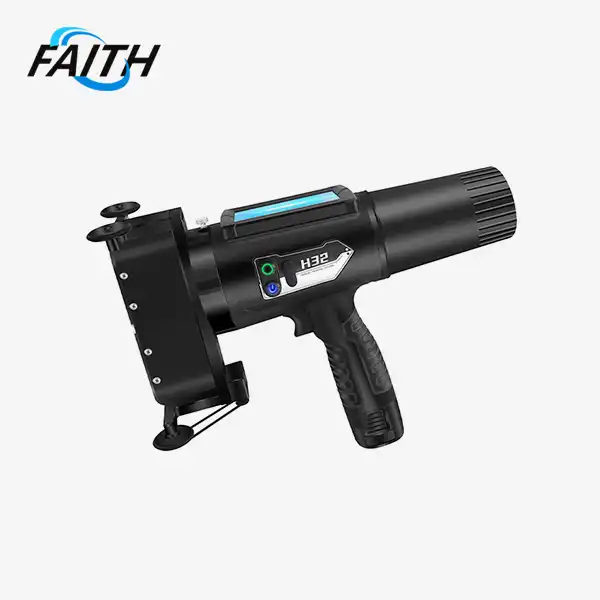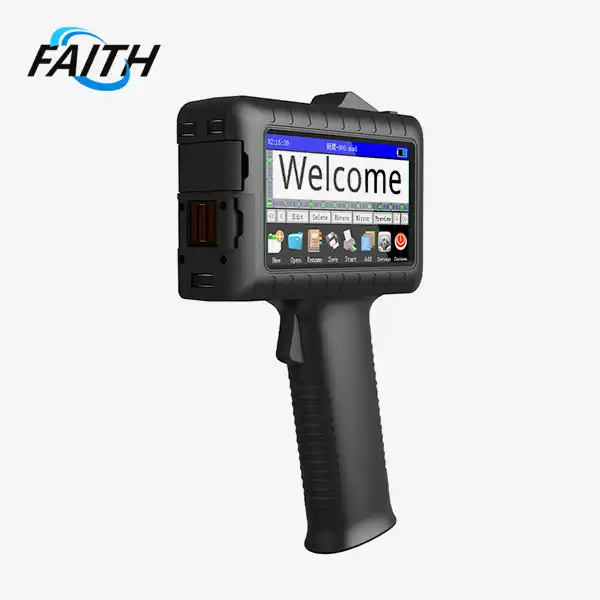Is a portable printer better than a regular printer?
When it comes to choosing between a portable printer and a regular printer, the answer depends on your specific needs and use case. Portable printers, like the handheld inkjet printer for bottles, offer unparalleled flexibility and convenience for on-the-go printing tasks. These compact devices excel in scenarios where mobility and quick, targeted printing are essential. However, regular printers still maintain advantages in terms of print volume, paper handling, and overall versatility for general office or home use. The decision ultimately boils down to your printing requirements, workspace constraints, and the nature of your printing tasks.
Understanding the Advantages of Portable Printers
Portable printers, particularly handheld inkjet printers for bottles, have revolutionized the way businesses approach product labeling and coding. These compact devices offer a range of benefits that set them apart from traditional printers:
Mobility and Flexibility
One of the primary advantages of portable printers is their incredible mobility. Take, for instance, the Faith KD360-M handheld inkjet printer for bottles. Weighing a mere 240g, this device redefines the concept of lightweight efficiency. Its compact size allows users to move freely around production lines, warehouses, or even outdoor events, printing on-demand wherever needed. This level of portability is particularly valuable in industries with dynamic production environments or those requiring frequent changes in printing locations.
Versatility in Printing Surfaces
Unlike regular printers that are limited to standard paper sizes, portable printers like the Faith handheld inkjet printer for bottles can print on a wide variety of surfaces. From curved bottle surfaces to various packaging materials such as paper, plastic, and metal, these devices offer unparalleled versatility. This adaptability makes them ideal for industries ranging from beverage manufacturing to electronic component labeling, where printing on diverse materials is a common requirement.
Space-Saving Design
In environments where space is at a premium, such as small production facilities or pop-up event spaces, the compact design of portable printers proves invaluable. These devices can be easily stored when not in use and don't require dedicated desk space like traditional printers. The Faith KD360-M, for example, can be comfortably held in one hand, making it an excellent choice for businesses looking to maximize their workspace efficiency.
Cost-Effectiveness
While the initial investment in a high-quality portable printer might be comparable to or slightly higher than a regular printer, the long-term cost benefits can be significant. Portable printers often have lower maintenance requirements and can reduce operational costs associated with label production. The detachable component design of Faith printer for bottles, for instance, simplifies maintenance and reduces associated costs. Additionally, the ability to print directly on products eliminates the need for separate label production and application processes, potentially leading to substantial savings in both time and materials.
Exploring the Capabilities of Handheld Inkjet Printers for Bottles
Handheld inkjet printers for bottles represent a specialized category within portable printers, offering unique features tailored to the beverage and packaging industries:
High-Resolution Printing
Despite their compact size, modern handheld inkjet printers for bottles are capable of producing high-quality prints. The Faith KD360-M, for example, boasts a 600 DPI high-definition inkjet printing capability. This level of resolution ensures that production dates, batch codes, and brand logos are clearly and legibly presented on bottles and packaging materials. The ability to produce crisp, professional-looking prints is crucial for maintaining brand image and meeting regulatory requirements in the beverage industry.
User-Friendly Interface
Ease of use is a critical factor in the fast-paced environment of production lines. Many handheld inkjet printers for bottles, including the Faith KD360-M, feature intuitive interfaces designed for quick operation. The 3.5-inch color screen with capacitive touch functionality allows operators to easily navigate settings and input printing parameters. This user-friendly design minimizes training time and reduces the likelihood of errors, contributing to overall operational efficiency.
Multi-Language Support
In an increasingly globalized market, the ability to print in multiple languages is a significant advantage. Faith's handheld inkjet printer for bottles offers multi-language support, breaking down geographical restrictions and enabling businesses to easily customize their product labeling for different markets. This feature is particularly valuable for companies with international distribution or those operating in multilingual regions.
Quick-Drying Ink Technology
The efficiency of a production line often hinges on how quickly products can move through various stages. Quick-drying ink technology, a feature of many advanced handheld inkjet printers for bottles, ensures that prints dry rapidly on various surfaces. This capability is crucial in high-speed bottling operations, where bottles need to be handled, packed, or shipped shortly after printing. The quick-drying formulation also contributes to the durability of the print, helping it withstand handling and environmental factors.
IoT Integration and Data Management
Leading manufacturers like Faith are incorporating IoT (Internet of Things) capabilities into their handheld inkjet printers for bottles. This integration allows for real-time monitoring of printing operations, data collection, and enhanced traceability. In an era where data-driven decision-making is crucial, these features provide valuable insights into production efficiency, ink usage, and quality control. The ability to connect these devices to broader production management systems contributes to smarter, more responsive manufacturing processes.
Comparing Portable and Regular Printers: Making the Right Choice
While portable printers, especially handheld inkjet printers for bottles, offer numerous advantages, it's important to consider how they stack up against regular printers in various scenarios:
Print Volume and Speed
Regular printers generally have the upper hand when it comes to high-volume printing tasks. They're designed to handle large print jobs efficiently, making them ideal for offices or businesses that require frequent document printing. However, in specialized applications like bottle labeling, handheld inkjet printers can often match or exceed the speed of traditional labeling methods. The Faith KD360-M, for instance, is designed to keep pace with high-speed bottling lines, ensuring real-time product identification without slowing down operations.
Print Quality and Precision
While regular printers excel in producing high-quality documents and images on paper, handheld inkjet printers for bottles have made significant strides in print quality for their specific applications. The 600 DPI capability of printers like the Faith KD360-M ensures clear, precise printing of text, logos, and even simple graphics on curved surfaces - a feat that regular printers cannot match. For businesses in the beverage industry, this level of quality and precision in bottle labeling is often more relevant than the ability to print high-resolution photographs.
Operational Costs
When considering operational costs, it's important to look beyond just the price of ink or toner. Regular printers might have lower per-page printing costs for standard documents, but they fall short in specialized applications. Handheld inkjet printers for bottles can significantly reduce overall operational costs in beverage production scenarios. By eliminating the need for separate label production and application processes, these devices can lead to savings in materials, labor, and time. Additionally, the targeted application of ink directly onto bottles or packaging often results in more efficient ink usage compared to traditional labeling methods.
Versatility and Adaptability
Regular printers offer versatility in terms of paper sizes and types, making them suitable for a wide range of general printing needs. However, handheld inkjet printers for bottles shine in their ability to adapt to various production environments and material types. The Faith KD360-M, for example, can print on paper, plastic, metal, and glass surfaces, offering unparalleled flexibility in industrial settings. This adaptability extends to the types of information that can be printed - from simple batch codes to complex variable data - making these devices invaluable in modern, agile production environments.
Integration with Production Processes
In industrial settings, the ability to integrate seamlessly with existing production processes is crucial. Here, handheld inkjet printers for bottles have a distinct advantage. These devices can be easily incorporated into production lines, offering real-time printing capabilities that sync with production speeds. Many models, including those from Faith, offer features like IoT integration and AI-driven defect detection, which enhance overall production efficiency and quality control. Regular printers, while useful in office settings, lack this level of specialized integration capability in industrial production scenarios.
Conclusion
In conclusion, the choice between a portable printer and a regular printer depends largely on the specific needs of your business or application. For general office use, where high-volume document printing is the primary requirement, regular printers remain a solid choice. However, in specialized industries like beverage production, or in scenarios requiring on-the-go printing capabilities, portable printers - particularly handheld inkjet printers for bottles - offer significant advantages.
The Faith KD360-M and similar handheld inkjet printers for bottles represent a leap forward in portable printing technology. Their combination of mobility, high-resolution printing, versatility in printing surfaces, and integration capabilities make them invaluable tools in modern production environments. As businesses continue to seek ways to improve efficiency, reduce costs, and enhance product traceability, these portable printing solutions are likely to play an increasingly important role.
Ultimately, the decision should be based on a careful evaluation of your printing needs, production environment, and long-term operational goals. In many cases, the ideal solution might involve a combination of both portable and regular printers, each serving its optimal purpose within your business operations.If you want to know more about handheld inkjet printer and traceability system solutions, please contact us: sale01@sy-faith.com.
FAQ
Q: How long does the battery last on a handheld inkjet printer for bottles?
A: Battery life varies by model, but many high-quality printers like the Faith KD360-M offer 8+ hours of continuous operation on a single charge.
Q: Can handheld inkjet printers for bottles print on wet surfaces?
A: Yes, many modern handheld inkjet printers, including Faith's models, are designed to print effectively on wet or curved surfaces commonly found in beverage production environments.
Q: Are the inks used in handheld inkjet printers for bottles food-safe?
A: Reputable manufacturers like Faith use food-safe, quick-drying inks that meet FDA, EU 1935/2004, and NSF standards, ensuring safety for use on food and beverage packaging.
References
1. Docod (Codpad). (2023, September 1). Advantages of Handheld Inkjet Printers: Portable Printing Power Unleashed.
2. TechBullion. (n.d.). Discover How Handheld Printers Can Transform Your Printing Needs.
3. Mateprint. (2025). The Complete Guide to Handheld Inkjet Printers in 2025.
4. INCODE. (2024, August 7). What are the advantages and disadvantages of handheld inkjet printers?
5. HOIN. (2024, October 13). Mobile Printers vs. Traditional Printers: Pros and Cons.
Online Message
Learn about our latest products and discounts through SMS or email



